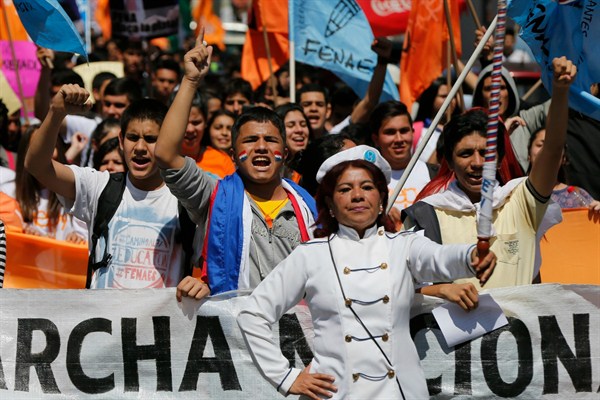Editor’s Note: This article is part of an ongoing series about education policy in various countries around the world.
The Paraguayan government, led by freshly sworn-in President Mario Abdo Benitez, announced the launch of a national dialogue on education reform last month. Paraguay’s public schools suffer from mismanagement, corruption and rural-urban inequality, but observers doubt that the new government is serious about addressing these issues. In an interview with WPR, Andrew Nickson, an honorary reader in public management and Latin American studies at the University of Birmingham, explains why the dialogue process in Paraguay probably won’t lead to the kinds of drastic changes necessary to improve the country’s education system.
World Politics Review: What is the current state of the education system in Paraguay?

